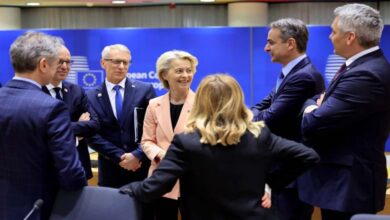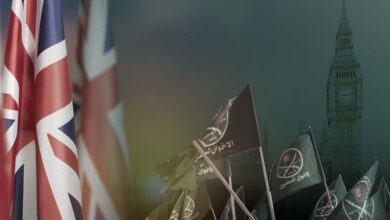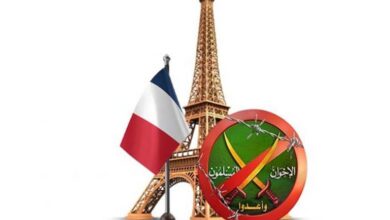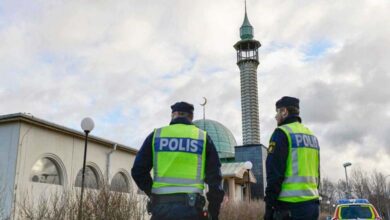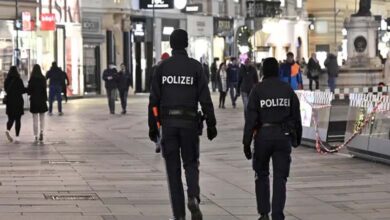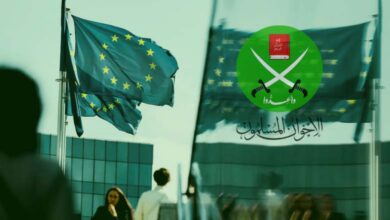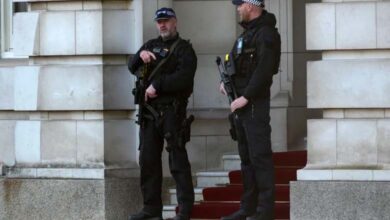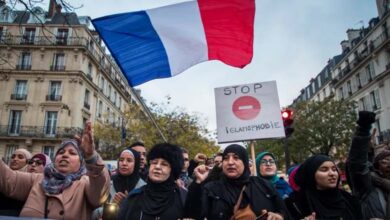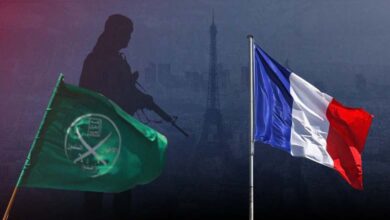A Step in the Fight: France Cuts Off Funding to Brotherhood-Linked Institute
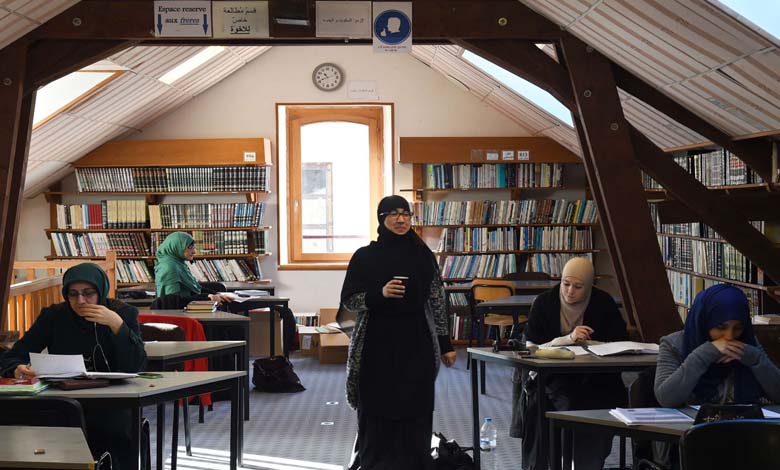
France continues its effort to counter the Muslim Brotherhood, a campaign that began with an intelligence report revealing the group’s influence across the country. The latest step focuses on drying up their financial resources.
-
Is France Moving Towards a Decisive Confrontation with the Muslim Brotherhood After the Intelligence Report?
-
France Leads European Initiative to Ban the Muslim Brotherhood… What’s New?
-
U.S. Congress Moves Closer to Designating Muslim Brotherhood as Terrorist Organization
-
The Muslim Brotherhood’s Cohorts Planted the Seeds of Islamism in Europe… How?
In one of the strongest actions yet against what the government refers to as “political Islam networks,” French authorities have frozen the financial assets of the European Institute of Human Sciences (IESH) in Château-Chinon, a religious institution considered a key ideological and educational front for the Muslim Brotherhood in France.
This decision was made official by a joint decree issued on June 16 by the Ministers of the Interior and Economy, ordering a six-month renewable freeze of the institute’s assets, according to French magazine Le Point.
-
Muslims of France: A Brotherhood Front Undermining the Fifth Republic
-
The Muslim Brotherhood’s Threat to Education in France: The Frontlines Begin at Averroès
An exceptional measure
According to the publication, the action goes beyond the institution itself, targeting two senior leaders of the institute with individual financial freezes.
This rare and firm measure reflects the French state’s uncompromising stance toward entities it deems influenced by the Brotherhood’s ideology.
Founded in 1990 with the backing of French authorities, the IESH was initially promoted as a center for training imams and educators as part of the “Islam of France” initiative.
However, the institute gradually came under increasing scrutiny from security and political circles after intelligence reports indicated that it played a pivotal role in spreading Brotherhood doctrine and forming ideologically loyal cadres.
-
The Muslim Brotherhood Threat in France: A Digital and Geographical Mapping
-
New Security Warning in France: The Muslim Brotherhood, “the Greatest Internal Threat”
Under close watch
In recent years, IESH has been frequently cited in reports by French intelligence agencies, especially the DGSI (General Directorate for Internal Security), as a core actor in advancing political Islam in France.
The institute has also been linked to several preachers believed to be affiliated with or sympathetic to the Brotherhood.
The move to cut off funding is part of a broader crackdown on Brotherhood-associated institutions in France, which has intensified following a series of terrorist attacks.
-
Reaching by Any Means: How the Muslim Brotherhood Penetrated France
-
France Continues to Pursue the Muslim Brotherhood… What’s New?
Previously, the government shut down the Ibn Rushd Center in Lyon, and intelligence reports have repeatedly warned of Brotherhood influence in both religious and educational circles.
According to the ministerial decree, the financial freeze may be extended, potentially leaving the institute unable to pay staff or continue operations.
For many observers, this step represents a turning point in France’s handling of organizations suspected of Brotherhood ties. It sends a strong message: the era of passive tolerance has come to an end.
-
Analysts Reveal France’s Stringent Measures to Confront the Brotherhood Threat in France
-
France: Increasing calls for banning the Muslim Brotherhood Organization… Why?
-
The Muslim Brotherhood’s representation for education in France… What do you know about the National Federation for Private Islamic Education?
-
Monitoring the Muslim Brotherhood’s funds in France… A devastating blow to the group
-
Escalade against the Brotherhood: New measures taken by France to combat the currents of political Islam
-
France – Successive blows to the Brotherhood in Europe to control its extremist activities


